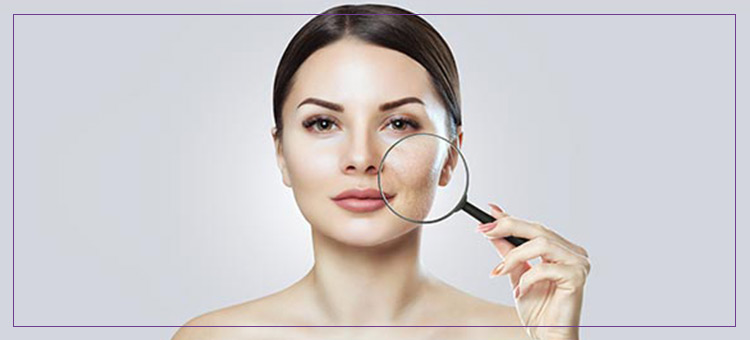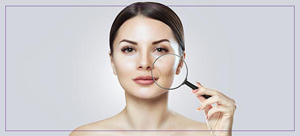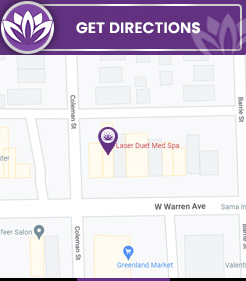Acne Treatment Specialist in Dearborn, MI
Acne is a common skin condition that primarily affects the face, back, and shoulders. It occurs when hair follicles become clogged with oil, dead skin cells, and bacteria. Various factors such as hormonal changes, genetics, and certain medications can contribute to its development. Treatments for acne are available at Laser Duet MedSpa. For more information contact us or book an appointment online. We are conveniently located at 15238 W Warren Ave Ste #A, Dearborn, MI 48126.




Table of Contents:
What is the main cause of acne?
Which treatment is best for acne?
What are the three symptoms of acne?
Who is a good candidate for acne treatments?
While the exact cause of acne varies from person to person, some of the main factors that contribute to its development include:
● Excess sebum production – Sebaceous glands in the skin produce an oily substance called sebum. When sebum is overproduced, it can mix with dead skin cells and clog the pores, leading to acne breakouts.
● Bacterial infections – The presence of a bacteria called Propionibacterium acnes on the skin contributes to acne. This bacteria multiplies within clogged pores, causing inflammation and the formation of acne lesions.
● Hormonal changes – Hormonal fluctuations, particularly during puberty, menstruation, pregnancy, and menopause, can trigger acne. Increased hormone levels stimulate the sebaceous glands to produce more sebum, increasing the likelihood of acne.
● Clogged hair follicles – When hair follicles become blocked with dead skin cells, excess oil, and bacteria, it leads to the formation of acne. This can be exacerbated by factors such as improper skin care, excessive sweating, and wearing tight clothing.
● Genetics – Acne has a genetic component, meaning that if your parents or close family members had acne, you are more prone to developing it as well.
● Lifestyle and environmental factors – Certain lifestyle and environmental factors can worsen acne or trigger flare-ups. These include stress, poor diet, exposure to pollutants and irritants, and the use of comedogenic cosmetic products.
When it comes to treating acne, it is highly recommended to consult an acne treatment specialist. Our team can assess your skin and recommend the most effective treatment options for you. Some commonly used acne treatments are:
● Topical treatments – These are applied directly to the skin and include over-the-counter products with ingredients like benzoyl peroxide, salicylic acid, or retinoids. Prescription-strength topical medications, such as antibiotic creams, can also be prescribed.
● Oral medications – Oral medications may be prescribed to manage acne. Antibiotics, hormonal medications, or Accutane may be recommended depending on your acne’s severity and type.
● Professional procedures – Procedures like chemical peels, microdermabrasion, and laser therapy reduce acne and improve the overall appearance of your skin.
● Lifestyle changes – Making certain lifestyle modifications can reduce acne. This may include adopting a consistent skincare routine, avoiding excessive touching or picking at the skin, using non-comedogenic products, and maintaining a healthy diet and exercise routine.
Depending on your needs, a combination of different treatments may be recommended to target various aspects of acne formation. Remember, what works best for one person may not work as effectively for another, which is why it’s crucial to seek professional guidance. Our specialists can evaluate your specific situation, consider factors like your skin type, severity of acne, and medical history, and tailor a treatment plan that suits your needs.
Acne can present with various symptoms, such as:
● Pimples – Pimples are one of the most recognizable signs of acne. They usually appear as small, raised bumps on the skin, often with a red or inflamed base. Pimples can be tender or painful to touch.
● Blackheads and whiteheads – These are non-inflammatory types of acne. Blackheads appear as small, dark spots on the skin’s surface, while whiteheads are closed comedones that appear as small, flesh-colored bumps. Both blackheads and whiteheads are caused by clogged hair follicles and excess sebum production.
● Inflammation and redness – Acne can cause inflammation and redness in the affected areas. Inflammatory acne types include pustules, papules, nodules, and cysts.
Acne treatments benefit a wide range of individuals who experience acne breakouts or struggle with acne-prone skin. Some characteristics of people who are good candidates for acne treatments include:
● Teenagers and young adults – Acne is commonly associated with hormonal changes during puberty and young adulthood. Adolescents who are experiencing acne breakouts can benefit from various acne treatments.
● Individuals with persistent acne – If you have persistent acne that does not respond to over-the-counter remedies, you are likely a suitable candidate for professional acne treatments. These treatments target acne’s underlying causes and reduce breakouts.
● People with acne scarring – Acne sometimes leaves behind scars or marks on the skin. People with acne scars can benefit from treatments that specifically target scar reduction and skin texture improvement.
Advanced Acne Solutions by Dr. Hanan at Laser Duet Med Spa
At Laser Duet Med Spa, Dr. Hanan provides advanced acne treatments designed for results without downtime. Using innovative devices and clinical techniques, she helps reduce sebum production, refine pores, and fade post-acne marks. Each plan begins with a thorough consultation to determine the best approach for your skin condition. Dr. Hanan focuses on restoring balance and preventing future flare-ups through targeted care. Patients love the combination of comfort, efficiency, and lasting improvement that her treatments deliver, transforming problem skin into radiant, healthy skin.
For more information contact us or book an appointment online. We are conveniently located at 15238 W Warren Ave Ste #A, Dearborn, MI 48126. We look forward to serving you! We serve clients from Dearborn MI, Detroit MI, Warren MI, Sterling Heights MI, Ann Arbor MI, Livonia MI, and surrounding areas.
Check Out Our 5 Star Reviews








